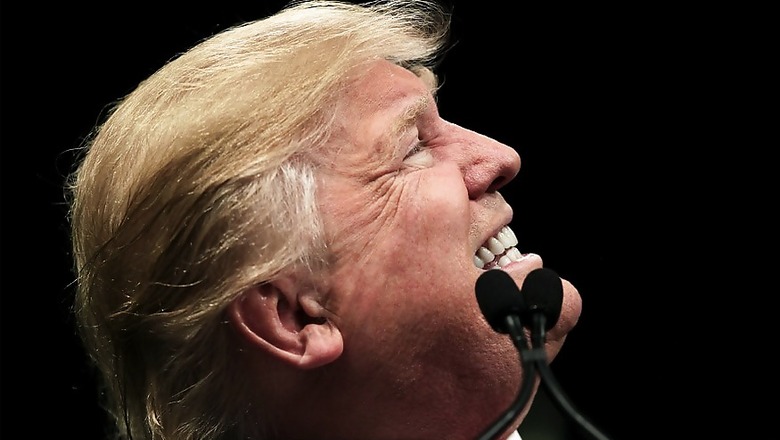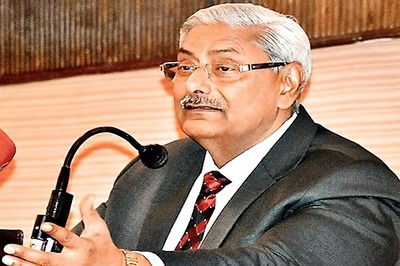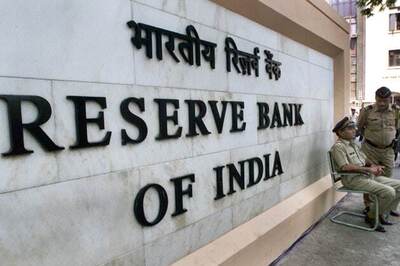
views
Washington: The new Iran strategy announced by President Donald Trump reflected a bitter partisan divide in the US politics, with the opposition Democratic leaders slamming it as a "reckless" decision and those from his own Republican party rallying solidly behind his decision.
The White House on Friday announced President Trump's new Iran strategy which focuses on neutralising Tehran's alleged destabilising influence in the region.
Later in the day, Trump announced that he would not certify Iran's compliance with the agreement, but stopped short of immediately cancelling US participation in the deal -- also known as the Joint Comprehensive Plan of Action (JCPOA), and left its fate in the hands of Congress.
Senator Ben Cardin, a ranking member of Senate Foreign Relations Committee, called Trump's decision "reckless".
"Not even one year into his presidency, this is one of the most dangerous and consequential decisions the president has made imperiling US national security," he said.
Cardin said he also disagreed with the president's "subsequent threat to Congress".
"We will not buy into the false premise that it is Congress' role to legislate solutions to problems of his own making," he said.
House Democratic Caucus Chairman Joe Crowley said Trump's decision was a "reckless and irresponsible" one "which will erode American credibility around the world and deteriorate its national security".
"The Iran Deal is working as intended: preventing Iran from acquiring enough material to develop a nuclear weapon. While it isn't perfect, this multinational agreement was a result of years of tough sanctions and intensive diplomatic efforts," he said.
But, on the Republican side, the mood was anything but worrying. This was evident by the fact that Trump's bitter rival, Senator John McCain, Chairman of the Senate Armed Services Committee, came out in strong support of the new Iranian policy.
"I agree with the president that the deal is not in the vital national interests of the United States. I look forward to working with my colleagues in Congress on additional legislation to increase sanctions and other pressure to hold Iran accountable for its broader destructive behavior in the region," McCain said.
Observing that for years, the Iranian regime had "literally been getting away with murder", while the US had lacked a comprehensive strategy to meet the multifaceted threat Iran poses, McCain said the goals Trump presented in his speech were a welcome change that was long overdue.
"They offer the United States a path forward that centers our policy towards Iran on its destabilizing regional ambitions rather than its nuclear program alone. I look forward to learning more about the specifics of this strategy, and the Senate Armed Services Committee will conduct thorough oversight of our military’s role in it," he said.
In a joint statement, top Republican House leaders – House Foreign Affairs Committee Chairman Ed Royce, House Majority Leader Kevin McCarthy, Mac Thornberry, and Liz Cheney said Trump's announcement rightly focuses on the full range of deadly threats from the Iranian regime.
"Our relationship with Iran should not be defined by one flawed nuclear deal. From Yemen to Lebanon, Iran is working to impose its brutal theocratic rule throughout the region. It supports terrorist groups like Hezbollah, bolsters the ruthless Assad dictatorship, promotes instability through sectarianism in Iraq, and abuses the human rights of the Iranian people," the statement read.
"We cannot allow such a regime to become a nuclear power. The nuclear deal has significant flaws that must be addressed if that objective is going to be accomplished," it further read.
The Iran nuclear deal was signed by Iran and 5+1 group of countries (Britain, China, France, Russia, the US and Germany) in 2015 under which Iran agreed to freeze its nuclear programme for 15 years in exchange for sanctions relief.



















Comments
0 comment